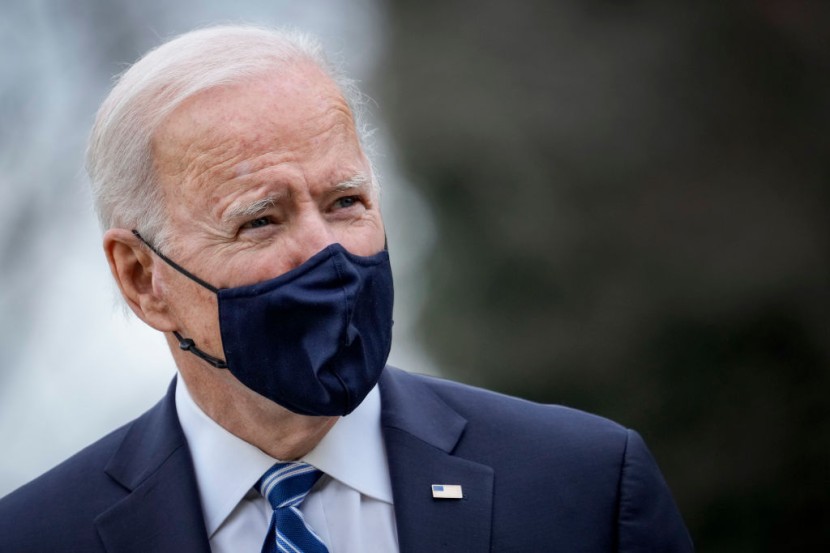
The Biden administration revealed Monday that it would extend a crucial coronavirus assistance program, food aid, to help more than 30 million kids after the school year ends. It is called the nation's biggest summer child nutrition campaign.
Biden administration expands food aid this summer
The Pandemic-EBT package would provide eligible households with $375 per child for the summer, or $6.82 per child per weekday, but the actual amount will vary whether a state chooses to use its schedule. Parents will then spend the money on food.
If they missed school in person during the year, children who usually get free or discounted meals and children under the age of six whose households collect food stamps are eligible for the food aid this summer. During the summer, when classes are not in session, it is usually more difficult for low-income children to access nutrition assistance.
According to the U.S. Department of Agriculture, summer meal services usually cover less than 20 percent of families served during the academic year. Agriculture Secretary Tom Vilsack said, "The extension of P-EBT benefits over the summer is a first-of-its-kind, game-changing intervention to alleviate child hunger in the United States."
Congress developed the Pandemic-EBT initiative to assist the millions of children who missed access to breakfast and lunch after their schools were closed due to the coronavirus last spring. The measure was later renewed for the 2020-2021 school year by lawmakers, and the Democrats' $1.9 trillion aid bill extended it for the remainder of the outbreak, including the summer.
On the other hand, states also found it challenging to implement the initiative, particularly this school year, since millions of students have stayed in remote learning and schedules are too varied. Although the administration has accelerated the approval process for states to offer Pandemic-EBT benefits for the 2020-21 school year, over a dozen states, have yet to obtain approval. Millions of children around the country would be unable to receive billions of dollars in federal food aid as a result, CNN via MSN reported.
Also, in states where the bill has been passed, parents complain they have yet to obtain benefits. Amid the pandemic, hunger has increased, especially among families with children.
President Joe Biden's Major Immigration Promises Waiting To Be Fulfilled
Food aid expansion is an effort to reduce child poverty
The scheme represents the Biden administration's efforts to nearly eliminate child poverty with a one-of-a-kind initiative that includes money for parents, child care centers, and schools, both of which will help to revamp the social safety net. Conservative analysts have warned that if the spending is made irreversible, it will hinder wealthier Americans' ability to work.
Stacy Dean, Agriculture's deputy undersecretary for food, nutrition, and consumer services, said Congress previously provided modest funds for pilot programs to test the effectiveness of the payments. The coronavirus relief package, on the other hand, required it to be implemented across the country.
Aside from food, the relief package allowed parents to receive approximately $250 a month for each child aged 6 to 17 starting in July. Families with a child under the age of six who meet the criteria will earn $300 per month. According to the provisions of the most recent coronavirus relief program, the grants are part of an expanded child tax credit that will expire at the end of this year.
The recurring fees will be extended until 2025, said President Joe Biden. The extension is part of a multi-trillion-dollar initiative that he intends to unveil in a joint address to Congress on Wednesday, as per WBALTV.
Joe Biden Plans To Increase Capital Tax Rate to as High as 43.4% On Wealthy Individuals
Biden launching biggest food aid in U.S. history
The Summer Pandemic Electronic Benefit Transfer (EBT) will be extended to distribute $375 per child for food expenses, said White House Press Secretary Jen Psaki. The money will be sent on an EBT card that people will get in the mail. The funds will last about ten weeks while the children are not in school.
Children who earn free or discounted school meals or children under the age of six who live in a household that engages in the Supplemental Nutrition Assistance Program (SNAP) are also eligible. Psaki told the press, "This is the single greatest summer child nutrition effort in our nation's history."
According to Psaki, feeding services had served fewer than 20 percent of participating households before this summer, The Hill reported. The expanded initiative is part of the American Rescue Plan, which allocates $350 million in federal grants to state and local governments to help them deal with economic problems caused by the pandemic.
© 2025 HNGN, All rights reserved. Do not reproduce without permission.








